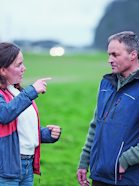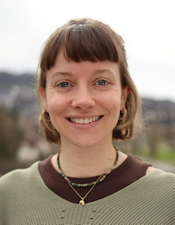Media Mention, Uni Aktuell: Climate protection in the Oberland
Project Update
Publish date: June 5, 2024

Media Mention, Uni Aktuell: Climate protection in the Oberland
Project Update
Publish date: June 5, 2024
Exerpt from UniAktuell Article by Pieter Poldervaart:
Tourism and milk production are the two mainstays of the Jungfrau region. But climate change puts both sectors at risk. Together with the Wyss Academy for Nature, the Canton of Bern and the University of Bern, the 28 municipalities of the East Oberland region are looking for strategies for more climate protection.
Avalanches and mudslides are just as much a part of the Alps as high fog is part of the Swiss Plateau. But now these things are becoming more and more frequent, observes Stefan Schweizer. The 59-year-old tells of a whole series of special weather events that have hit the region over the past two decades. In 2003, around 375 tons of rock buried the Chüebalm Tunnel near Iseltwald. In 2005, there was major flooding, which was followed by further floods in 2008, 2009 and 2011. “We’re used to snow avalanches here,” says Schweizer. But the fact that enormous masses of water increasingly gather and thunder down into the valley, flooding pastures and submerging cellars is new. Schweizer: “That’s what’s worrying us.”
Team
- Project contactProject contact
Julia Dietrich
Scientific Collaborator
